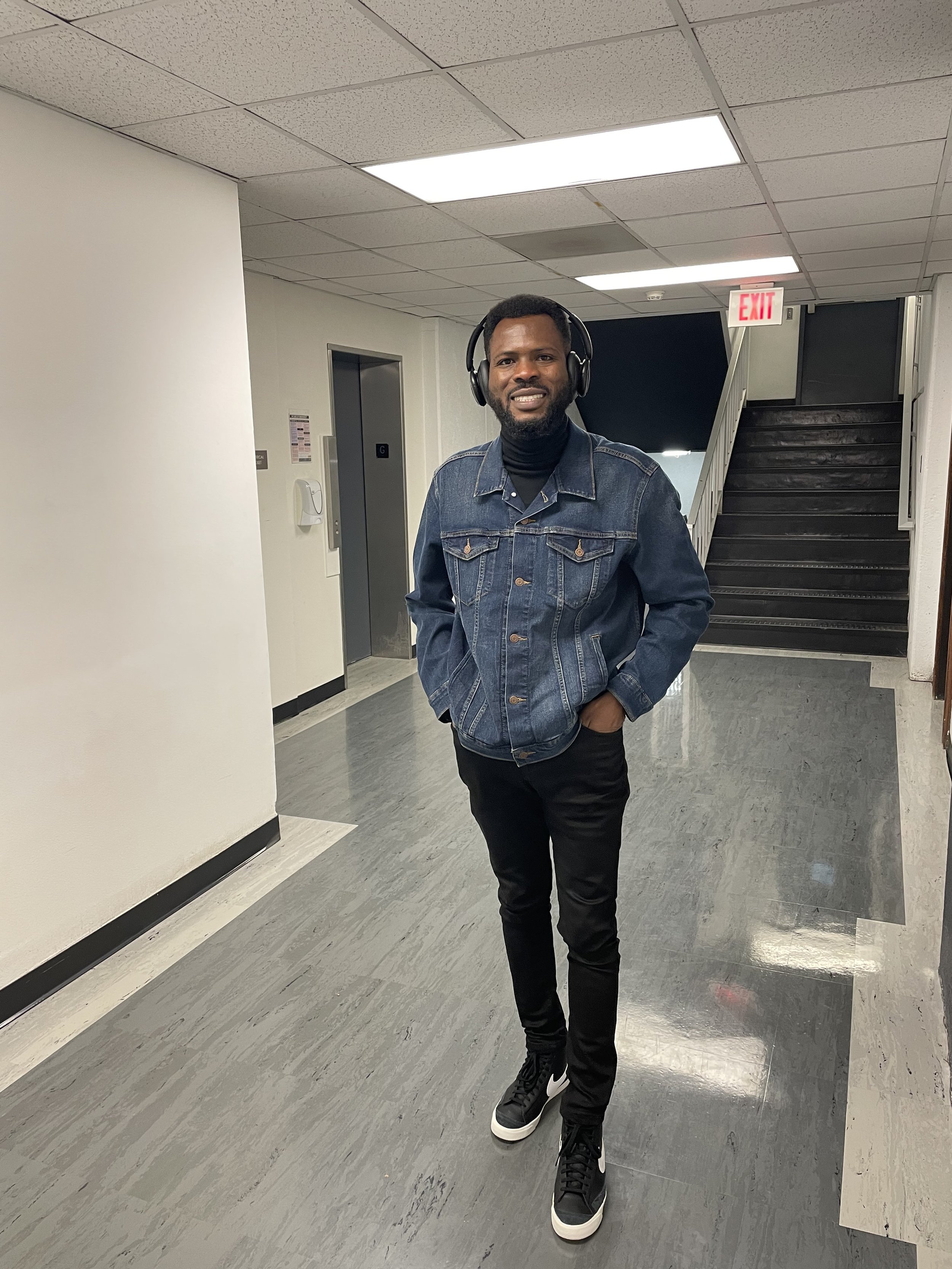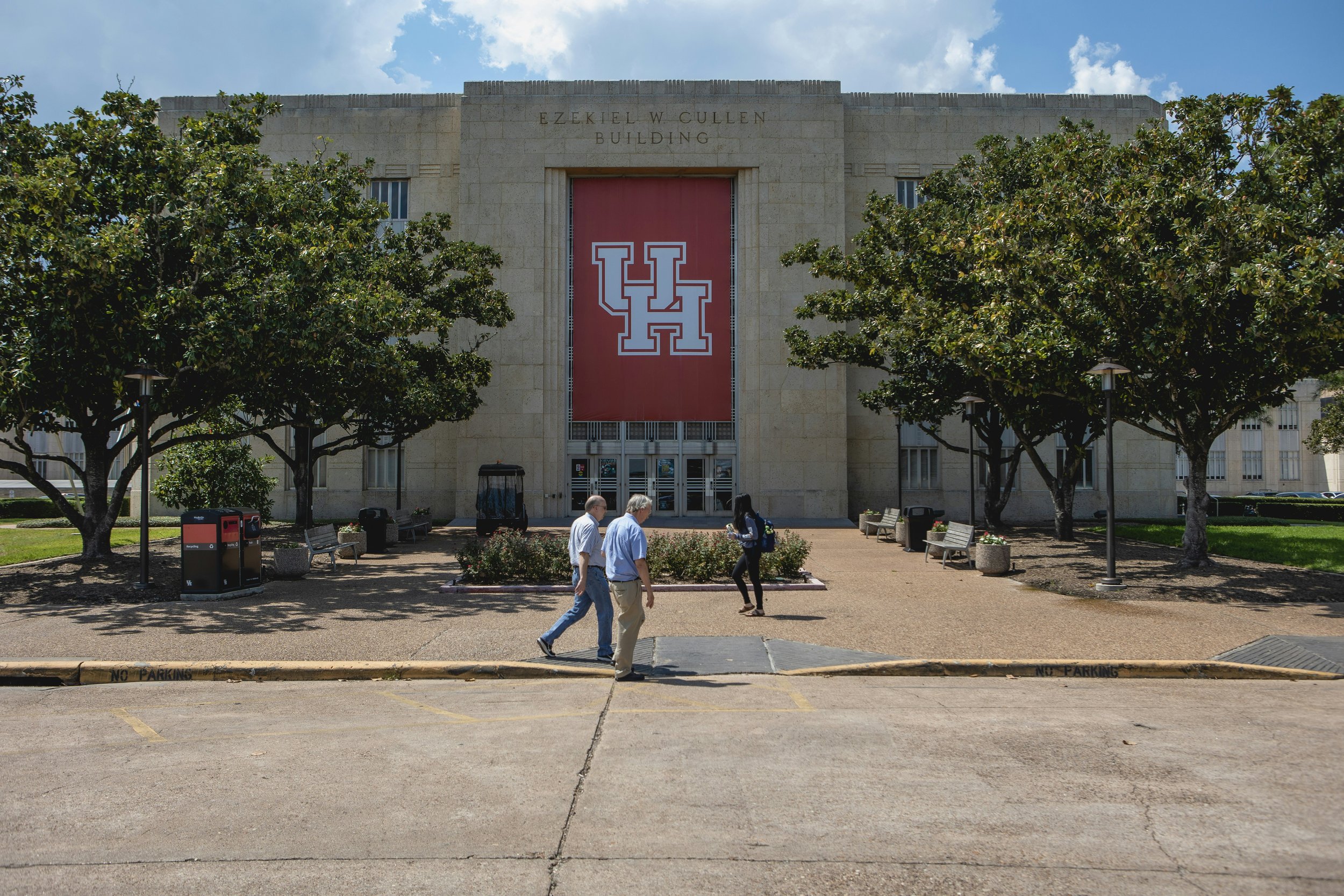GAIN Alumni Spotlight Series: Samuel Danilola
Presenting another captivating chapter in our Alumni Spotlight Series, we introduce Samuel Danilola, a distinguished PhD candidate in economics at the University of Houston. In this blog post, Samuel generously shares insights into his application process experience, highlights GAIN’s pivotal role and offers strategies to assist in securing exceptional opportunities.
Join us as we delve into Samuel's journey, extracting invaluable wisdom from his academic endeavours.
PhD scholar and GAIN alumnus Samuel Danilola.
GAIN Alumnus: Samuel Danilola
Embarking on the narrative of my academic evolution, I initially harboured a disdain for Economics during high school, perceiving it to be centred around the analysis of the pros and cons of various things, such as sole proprietorship and different business forms. Opting for science-oriented courses, I pursued Physics, Chemistry, Biology, and Mathematics. Fast forward nine years, a pivotal decision emerged: choosing between a medical degree and Agricultural Economics for my bachelor's. Opting for the latter, I now hold Bachelor's and Master’s degrees in Agricultural Economics from the University of Ilorin, Nigeria, and find myself in the first year of a PhD program in Economics at the University of Houston. I was fortunate to be part of the GAIN 2022/2023 cohort.
What Sets My Profile Apart
Significant credit for my success in securing admission offers goes to the GAIN mentoring program, whose guidance proved invaluable in crafting a compelling application that yielded three PhD and one Master's offer, with all but one offering full funding. Of the various elements that contribute to admission offers, some are within our control, and it is essential to tick all the boxes required by the programs. Including encompassing meeting the minimum requirements, obtaining strong references, especially from professors familiar with your research and academic abilities, and, most importantly, submitting your applications before the deadlines - including references. However, my distinct advantage lies in my robust research experience. At the time, having co-authored five papers in Scopus-indexed journals and working as a research assistant to an Economics professor set my application apart, as acknowledged by admission committee heads from two of the programs that admitted me. However, it is crucial to recognize that no application is flawless and both committees pointed out areas for improvement to be very successful in the program. Striking a balance is key, as having a deficiency is not a recipe for failure, and having all the right qualifications does not guarantee an offer. The vital takeaway is not to doubt oneself but to ensure no missed opportunities due to underestimating capabilities. Furthermore, being part of the GAIN mentoring program bolstered my confidence and provided me with a mentor who offered invaluable support throughout the application process.
Handling Multiple Admission Offers
PhD scholar and GAIN Alumnus Samuel Danilola.
I found myself weighing four admission offers—an enticing choice between two fully funded PhD programs in Economics, another for an unfunded PhD in Agricultural Economics, and a final offer for a funded M.A. in Agricultural, Food, and Resources Economics. The decision to decline the offer lacking financial support was clear-cut– why accept it when it lacks financial support? However, for the programs offering funding, I sought advice from my GAIN mentor, who had been exceptionally helpful from the beginning of the mentorship program. After consulting with her, my family, and respected elders, I chose the program that offered the best support system for my PhD journey. I heard that pursuing a PhD can be a solitary endeavour, and having a strong social network can help ease the stress that might arise. Moreover, since this was my first time leaving Nigeria, I considered the importance of not being alone in a foreign country. Reflecting on my decision, I'm grateful for factoring in these considerations. Additionally, I evaluated the cost of living in the respective cities and compared it to the offers I received. It's essential to consider various factors as the highest-paying offer may not necessarily be the best fit.
Applying for Scholarships and Financial Aid Packages
As I subtly mentioned, funding played a central role in my decision to accept or reject offers, as I could not afford to finance my PhD myself. Consequently, I targeted schools offering some form of funding, whether through financial aid, teaching or research assistantships, or scholarships. Beyond meeting the basic requirements, I paid close attention to application deadlines, recognizing that many programs required submission, including references, well before the official application deadline to be considered for funding. These early deadlines, often a month or more in advance, became a priority for me. Interestingly, I found that a singular application often sufficed for both program admission and funding consideration. Paying attention to these varying submission deadlines and details is crucial.
Paying close attention to application deadlines is important, especially if you wish to be considered for funding. In many North American Economics PhD programs, a single application may be sufficient for funding consideration if you submit it before the stated deadline. Do not miss this deadline under any circumstances. Some applications ask whether you can attend without funding and, if it is the case, you must be explicit in stating that you cannot afford the fees. If you are applying to programs by first contacting professors, as is common in Europe, ensure that financial aid is part of the conversation. Professors may not assume this, so it is crucial to explicitly discuss it with them.
Shaping My Profile and Goals
After securing admission, I reached out to former students in my current program via LinkedIn and the school’s website to gather insights for success in the program. One resonant response was: "For you to have received this offer, you already possess the ingredients for success in the program." This insight underscored the significance of one's background in both the admission decision and the anticipated contributions within the academic environment. Centering my statement of purpose (SOP) around the core skills I acquired during my research experiences, I find confidence in aligning my ongoing research with the questions I envisioned in the past. This is important, so do not try to erase your background in your application. Instead, create a connection between your unique background and the program, illustrating how it has prepared you to succeed in the PhD.
Source: University of Houston sign photographed by Terren Hurst. Linked here.
Advice for PhD Program Applications
Statement of purpose
Firstly, on writing the statement of purpose (SOP), leverage the resources provided by GAIN to prepare your application. Utilize the online guidance, particularly on writing your SOP and preparing for standardized tests. However, there is no one-size-fits-all SOP. Tailor your SOP to align with the nuances of each specific school you are applying to, acknowledging that PhD Economics programs may vary in their selection criteria, so ensure your SOP presents you as the best fit for the specific program. Schools have unique preferences and requirements, necessitating the crafting of distinct SOPs for individual applications. To tailor your SOP, visit the program's websites, study their details and requirements, and pay attention to their description of what an ideal SOP should include. Address the questions raised by their requirements in your SOP. Do not leave any stone unturned.
References
Secondly, securing references early can be challenging, especially before the submission deadline. It is advisable to create a comprehensive list of professors earmarked for reference requests, providing them with the necessary information for crafting high-quality references as early as possible. Throughout the application process, I ensured that all my references were either Economics professors or professors using the research methods I intended to use, even if they were not Economics professors. For instance, one of my references was a professor of Management, but she had expertise in experimental design, which was the research tool I intended to use. The other professors had either taught me, worked with me, or supervised my dissertations in my previous degrees. This helps bolster your credibility.
Source: Graduation photographed by Charles DeLoye. Linked here.
Application tracker
Thirdly, maintain an applications tracker. I highly recommend this practice especially when applying to multiple schools. GAIN mandated we use one, and it proved indispensable. An application tracker allows you to quickly view where you stand in the application process and ensures you do not miss any deadlines. Relying solely on memory becomes impractical given the numerous deadlines you will need to juggle while simultaneously reaching out to several professors and keeping track of each school's requirements. My tracker included information such as the program and school names, a list of all requirements, submission deadlines for financial aid, names of references for each school, and a checklist of documents I had not submitted yet. Keeping an application tracker was a lifesaver.
Applying to multiple programs
Furthermore, I recommend applying to as many schools as you can. The more high-quality applications you submit, the higher your likelihood of securing at least one favourable offer. While you might wonder why you should apply to many schools if your documents are stellar. It is crucial to remember that the PhD admission process involves evaluating your application in comparison to others, not just its individual merits. Therefore, submitting applications to more schools enhances your odds of being selected by one program. I followed this strategy and can vouch for its effectiveness. It is prudent to diversify your application list to include both reach and safety schools, optimizing your chances of securing a good offer.
Also, to apply to more schools, seek application fee waivers. Some schools grant them if you send an email to the graduate school coordinator, while others may have specific fee-free periods. Applying within these periods can save you money. I applied for fee waivers for half of my applications and was granted them. It is an option worth exploring to increase your application count.
Handling Rejections
Finally, be prepared for rejections, as they are an inevitable part of the process. To reassure you, I faced rejections from 80% of the schools I applied to. Therefore, it is essential not to be too hard on yourself. You only need one "yes," and that "yes" will come. By following the advice I have shared, you can better navigate the admissions process. Do not give up, continue submitting high-quality applications, and remember that prayer, if it is part of your practice, can be a source of strength and support.




